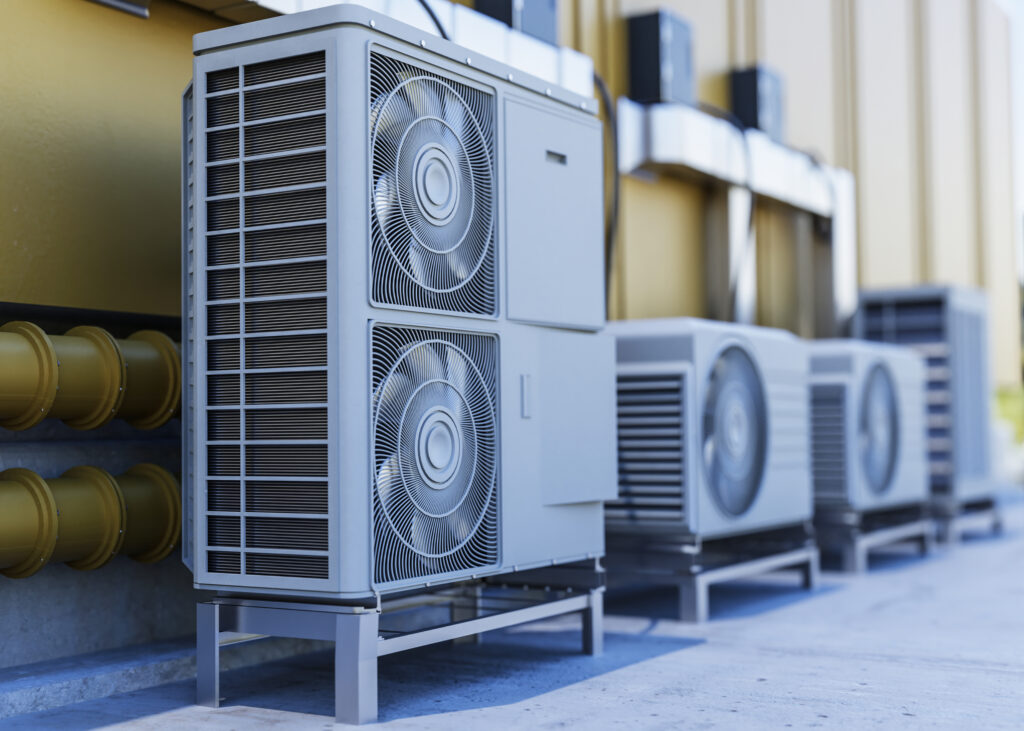
What is HVAC System?
HVAC stands for Heating, Ventilation, and Air Conditioning. An HVAC system is designed to control the environment within enclosed spaces, providing thermal comfort and indoor air quality. It encompasses various components and technologies to facilitate heating, cooling, ventilation, and humidity control within residential, commercial, and industrial buildings. Whether it’s a scorching summer day or a freezing winter night, an efficient HVAC system can keep you comfortable throughout the year.
The Components of an HVAC System
1) Heating Equipment
Heating is an essential aspect of an HVAC system, especially in colder climates. There are different types of heating equipment commonly used in HVAC systems, including furnaces, boilers, and heat pumps. Furnaces are the most popular heating option, utilizing natural gas, propane, or electricity to generate heat. Boilers, on the other hand, heat water or steam and distribute it through radiators or underfloor pipes. Heat pumps, which can both heat and cool, transfer heat from one place to another using refrigerant.
2) Ventilation
Proper ventilation is crucial for maintaining good indoor air quality. Ventilation systems in HVAC setups help remove stale air, control moisture levels, and replenish fresh air. Ductwork is an integral part of ventilation, allowing the air to circulate throughout the building. Additionally, air handlers play a key role in moving and conditioning the air, while vents ensure proper airflow and distribution.
3) Air Conditioning
Air conditioning is an essential component of an HVAC system, particularly in regions with hot and humid climates. Air conditioning units remove heat and humidity from the air, creating a cool and comfortable environment. Central air conditioning systems consist of an outdoor condenser unit and an indoor evaporator coil that work together to cool and dehumidify the air. Ductless mini-split systems provide similar cooling capabilities but without the need for extensive ductwork.
4) Controls and Thermostats
Controls and thermostats are essential for regulating and maintaining the desired temperature in an HVAC system. Thermostats allow users to set their preferred temperature and control the operation of the heating and cooling components. Advanced thermostats can be programmable, allowing for energy-efficient temperature settings and remote control capabilities.
How Does an HVAC System Work?
1) Heating Process
In the heating mode, an HVAC system extracts heat from the heat source, whether it’s a furnace, boiler, or heat pump. The heat is then distributed throughout the building using air handlers and ductwork or through other means like radiators or underfloor pipes. The blower in the air handler circulates the warm air, ensuring even distribution and maintaining a comfortable temperature.
2) Cooling Process
During the cooling process, the air conditioning unit removes heat and humidity from the indoor air. The refrigerant in the system absorbs heat from the indoor evaporator coil and carries it to the outdoor condenser unit. The heat is then released into the outdoor air, and the cooled refrigerant returns to the indoor unit to continue the cooling cycle. The blower in the air handler circulates the cooled air throughout the building, providing a refreshing and comfortable indoor environment.
3) Ventilation Process
Ventilation in an HVAC system involves the exchange of indoor and outdoor air to maintain air quality. Proper ventilation helps remove odors, pollutants, and excess moisture from the indoor environment. In a forced-air system, the return ducts collect indoor air, which passes through filters to remove contaminants and then mixes with fresh outdoor air before being distributed back into the living spaces. In ductless systems, the air exchange occurs directly between the indoor unit and the room.
Finding the Right HVAC Company in Calgary, AB
When it comes to HVAC services in Calgary, AB, Shift Air is a trusted and reliable HVAC company. With their team of skilled HVAC contractors, Shift Air provides a wide range of HVAC services, including installation, maintenance, and repair. They have extensive experience with various HVAC systems and are committed to delivering high-quality service and customer satisfaction.
Conclusion
An HVAC system is a vital component of any residential or commercial property, providing heating, ventilation, and air conditioning to ensure a comfortable and healthy indoor environment. Understanding how HVAC systems work and the different types available can help you make informed decisions about installation, maintenance, and repair. By partnering with a reputable HVAC company like Shift Air, you can enjoy reliable HVAC services and optimal comfort throughout the year in Calgary, AB.
FAQs
Regular maintenance is essential for the proper functioning of an HVAC system. It is recommended to have your HVAC system serviced at least once a year, preferably before the start of the heating or cooling season. This maintenance visit allows HVAC technicians to inspect the system, clean components, check for any issues, and ensure optimal performance.
The lifespan of an HVAC system can vary depending on various factors, including the quality of equipment, regular maintenance, and usage. On average, a well-maintained HVAC system can last between 15 to 20 years. However, some components may require replacement or repair before that timeframe.
There are several ways to improve the energy efficiency of your HVAC system. Regular maintenance, including cleaning or replacing air filters, ensures proper airflow and reduces strain on the system. Installing a programmable thermostat allows you to set temperature schedules, optimizing energy usage. Proper insulation, sealing air leaks, and upgrading to energy-efficient equipment can also contribute to improved efficiency.
If your HVAC system is not heating or cooling properly, it’s best to contact a professional HVAC contractor for diagnosis and repair. Several factors, such as thermostat issues, refrigerant leaks, or faulty components, can affect the system’s performance. Attempting to fix complex HVAC problems without proper knowledge and training can lead to further damage or safety hazards.
